ESSO - Indian National Centre for Ocean Information Services
(An Autonomous Body under the Ministry of Earth Sciences, Govt. of India)
Biological Observations in the Indian Ocean (From Microbes to Megafauna)
during 8-12 November 2021
Organized by
Indian Ocean Global Ocean Observing System (IOGOOS)

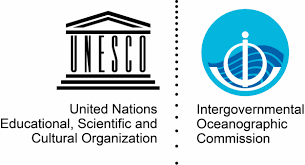
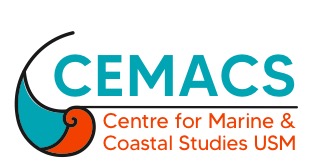


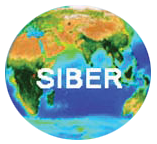
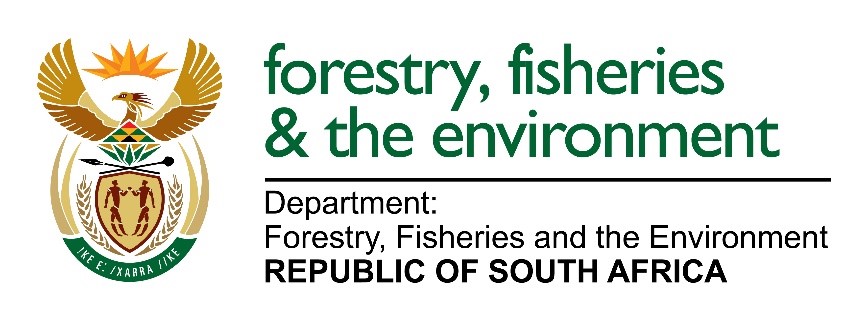
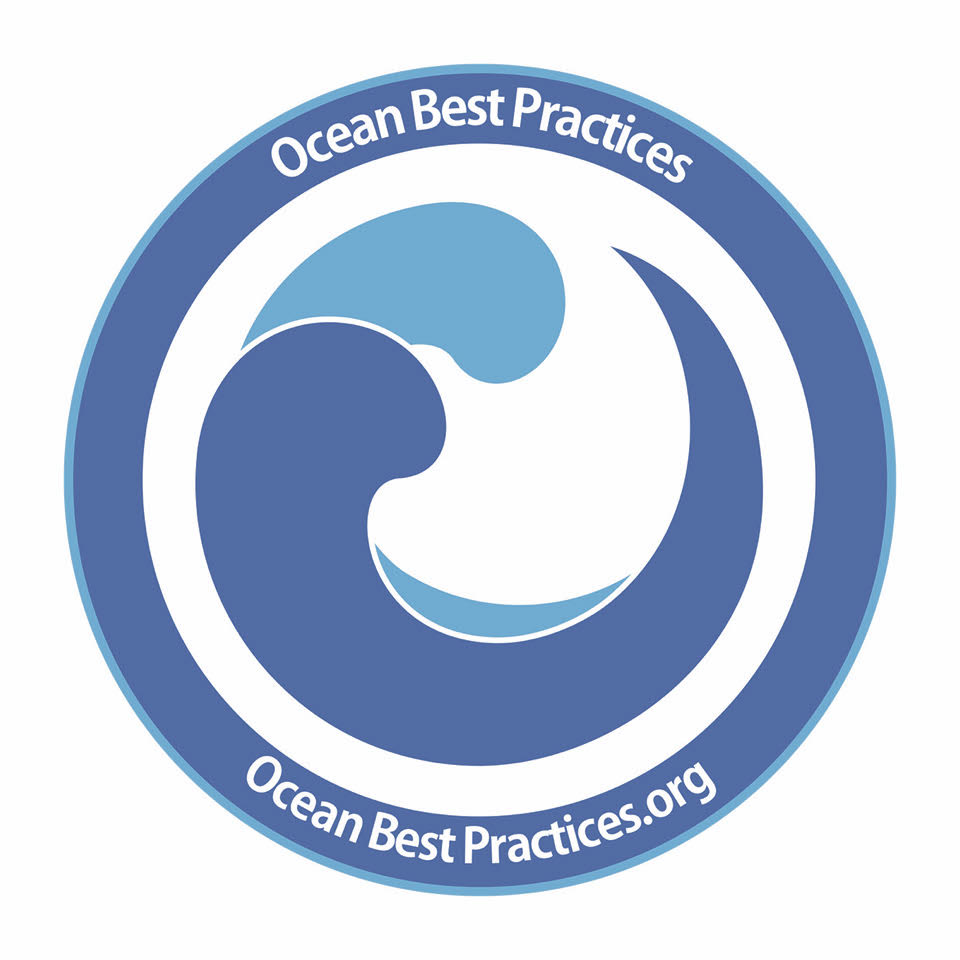
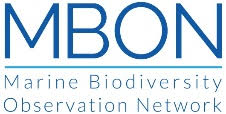
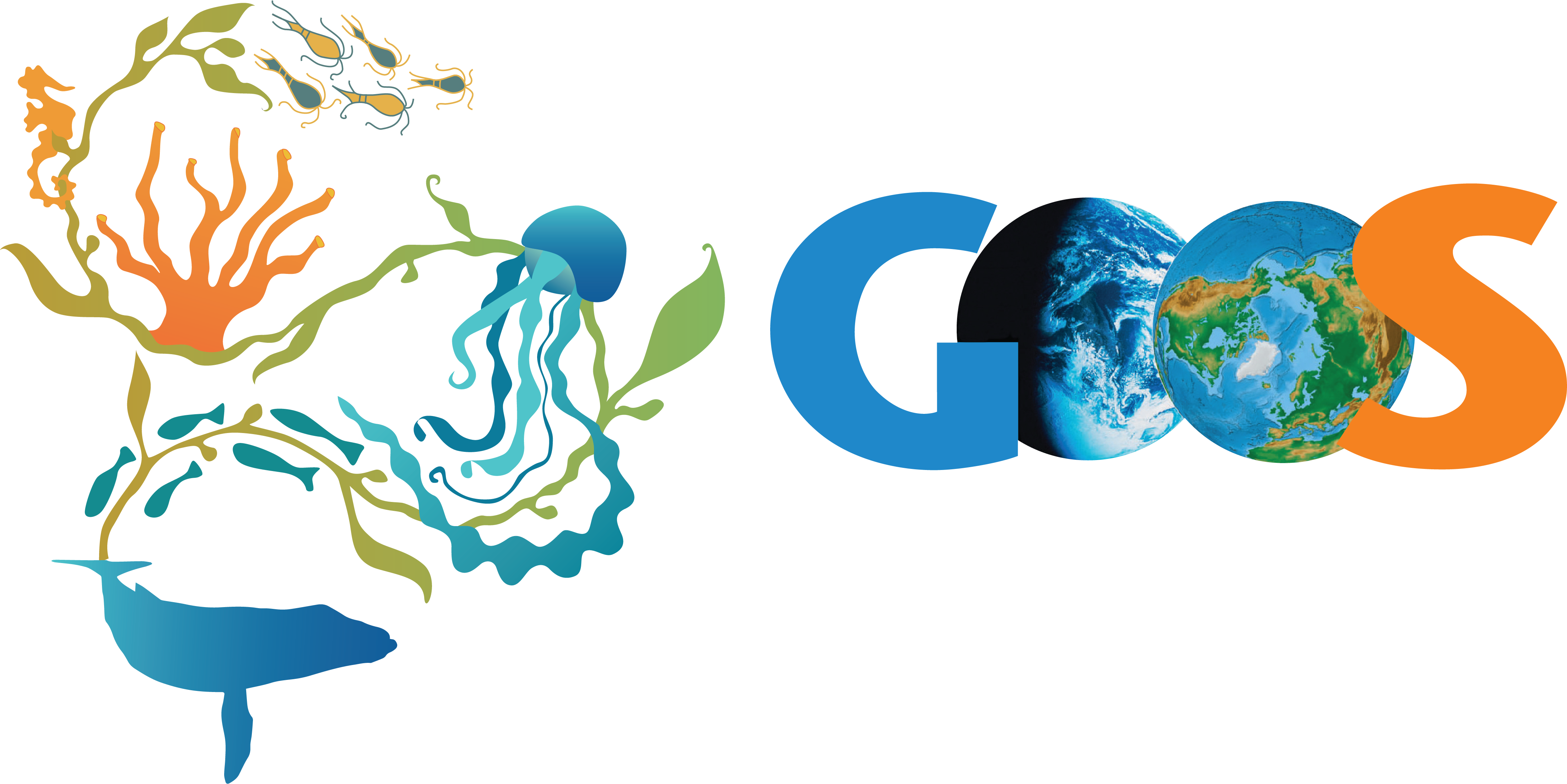
The ocean plays a vital role in regulating the global ecosystem as well as providingan invaluable source of economic, social, and cultural wealth. It is predicted that the ocean will face numerous challenges especially in the next decade where climate change and ocean acidification will bring extreme impacts to the biological aspects of the sea. Maritime countries around the Indian Ocean rim rely heavily on the health of the ocean to continue driving development and to provide food security for the region. Hence, observation and monitoring of changes in the biological components of the Indian Ocean are becoming essential in order for us to safeguard and ensure the sustainability of the diverse flora and fauna in the ocean.
Currently, efforts in documenting and monitoring various flora and fauna of the Indian Ocean are being undertakenby various parties and institutions with no coordinated or centralized data collection methods. This workshop aspires to expose researchers of different countries and institutions to adopt standard methodology and data collection protocols for biological monitoring to enable comparisons and integrated data analysis across the region. These collective efforts will aim to make the data open, available, and usable for region-wide monitoring and management.
This workshop is also organized in line with the aspirations of the UN Ocean Decadeto foster joint research and strengthen international cooperation in support of ocean conservation and sustainable development. Implementation of routine and standardized biological observations in the Indian Ocean will also support one of the key challenges of the Decade, to expand the Global Ocean Observing System. This will contribute towards desired outcomes including a healthy and resilient ocean, a predicted ocean and a transparent ocean (www.oceandecade.org).
The workshopcontent will focus primarilyon biological essential ocean variables (EOVs) for functional groups, in particular microbes, phytoplankton, zooplankton and benthicinvertebrates, but will also briefly cover fish, turtles and marine mammals, as well as habitat statessuch as hard corals, mangroves and seagrasses.
- Promoting the need for sustained biological observations in the Indian Ocean.
- Promoting best practices for biological observations in the Indian Ocean.
- Presentation of practical& affordable as well as state of the artmethods.
- Access to standardized methodologies for biological EOVs.
- Enhanced regional networking, collaboration and mentorship opportunities.
- Regional ambassadors for biological observations.
- Identification of further training needs for the region.
- Masters' students in Biological Oceanography or related fields.
- Research Scholars in any branch of Oceanography
- Young Scientists working in the field of Marine Biogeochemistry / Biological Oceanography / Marine Biology
The course content broadly covers the topics on Microbes, Phytoplankton Biomass and Biodiversity, Remote Sensing Applications, Zooplankton Biomass & Biodiversity, Molecular Analysis / Genomics (Biodiversity), Benthic invertebrate sampling / Biodiversity Assessment, Habitat categories (coral reefs, seagrass beds, mangroves, etc.), Fish Turtles, Marine Megafauna, etc.
All the applicants need to fill-in the application form
(https://docs.google.com/forms/d/e/1FAIpQLSer2UWckwTmcYmU3Dck4Wtq1ImppG8tSqjVRKj1POz3wzEn5Q/viewform?usp=pp_url) along with the supporting documents, if any. The selection will be made based on the information provided in the application, wherein preference will be provided to the Early Career Young Professionals and students who are directly working for institutions that have relevance to biological observations.
Period for Applications:September 15, 2021 - November 02, 2021.
- Candidates should have completed their undergraduate degree with Oceanography / Marine Biology / Botany / Zoologyas optional or main subjects.
- Good working knowledge of English
- A Certificate of Participation will be issued to all successful students upon providing feedback form and submission of assignments (if applicable).
Course Dates :
November 8-12, 2021 from 1100 Hrs to 1600 Hrs (All timings in IST)
Last Date to recieve application :
November 02, 2021 @ 1730 Hrs of IST
Venue :
Online platform (link will be sent to all shortlisted candidates)
The Faculty are experts from International and National research institutions working in the field of Biological Oceanography, Fisheries, etc. and are from the following reputed institutes:
Coastal Oceans Research and Development in the Indian Ocean (CORDIO), East Africa
Commonwealth Scientific and Industrial Research Organisation (CSIRO), Australia
Department of Forestry, Fisheries and the Environment (DFFE), South Africa
Indian National Centre for Ocean Information Services (INCOIS ), India
Marine Megafauna Foundation (MMF)
National Centre for Polar and Ocean Research (NCPOR), India
National Ocean and Atmosphere Association (NOAA), USA
Nelson Mandela University (NMU), South Africa
Oceanographic Research Institute (ORI), South Africa
University of Cape Town (UCT), South Africa
Universidade Eduardo Mondlane (UEM), Mozambique
University of KwaZulu-Natal (UKZN), South Africa
Universiity Malaya (UM), Malaysia
University of Oxford, United Kingdom
Universite de la Reunion, France
University of Queensland (UQ), Australia
University of South Florida, USF, USA
Universiti Sains Malaysia (USM), Malaysia
University of Western Australia (UWA), Australia.
- International Training Centre for Operational Oceanography (ITCOocean) / Indian National Centre for Ocean Information Services (INCOIS)
-
Intergovernmental Oceanographic Commission (IOC) of UNESCO
- IOC Perth Regional Programme Office and
- IOC's Sub Commission for Africa & the Adjacent Island States (IOCAFRICA)
- Department of Forestry, Fisheries and the Environment (DFFE), South Africa
- Sustained Indian Ocean Biogeochemistry and Ecosystem Research (SIBER)
- Centre For Marine & Coastal Studies, UniversitiSains Malaysia, Malaysia
- Indian National Centre for Ocean Information Services (INCOIS), India
For Any questions please contact:
Regional Training Centre Coordinator :
- Dr.T V S Udaya Bhaskar (itcoocean@incois.gov.in/uday@incois.gov.in)
|
Time |
Activities |
Speaker |
|
DAY 1: Monday 8 November Microsoft teams meeting link: Click here to join the meeting |
||
|
OPENING AND INTRODUCTION [Chair: Dr PN Vinaychandran] |
||
|
Time zone: IST |
Setting the scene & welcome |
|
|
11:00– 11:30 (30 minutes) |
Welcoming remarks |
Dr T. Srinivasa Kumar (Dir: INCOIS & Chair, IOGOOS) |
|
Opening remarks by Partner Institutes: SIBER CEMACS DFFE (tbc) |
Dr. Greg Cowie (Co-Chair, SIBER) Prof. Aileen (USM) |
|
|
Introduction: Biological observations in the context of climate change and the UN Decade of Ocean Science - EOVs, EBVs & ML2030 Brief on the workshop objectives, and expected outcomes |
Dr. Jenny, Huggett (DFFE, SIBER & IOGOOS Officer) |
|
|
11:30 – 12:00 (30 mins) |
Participants brief self-introduction Virtual Group photo |
All Participants |
|
12:00 – 12:30 (30 mins) |
Keynote 1: The use of biological indicators in ecosystem assessments
|
Prof Anthony Richardson (UQ & CSIRO) |
|
12:30 -13:00 (30 mins) |
Keynote 2: Delving into the Deep: First Descent - Seychelles
|
Dr Paris Stefanoudis (University of Oxford & Nekton Oxford Deep Ocean Research Institute) |
|
13:00 – 14:00 (1 hour) |
Lunch |
|
|
MICROBES [Chair: Dr Lynnath Beckley] |
||
|
14.00 – 14:30 (30 mins) |
The Ocean Microbiome: The Ocean’s invisible Engine |
Dr Emma Rocke (UCT) |
|
14:30 – 15:15 |
Modern imaging and OMICS techniques used to describe and quantify marine microbial communities |
Dr Emma Rocke (UCT) |
|
15:15 – 16:00 (45 mins) |
Biodiversity measurement (sequencing)
|
Dr Eric Raes (Minderoo Foundation)
|
|
DAY 2: Tuesday 9 November Microsoft teams meeting link: Click here to join the meeting |
||
|
PHYTOPLANKTON FUNDAMENTALS [Chair: Dr Tarron Lamont] |
||
|
11:00 - 11:30 (30 mins) |
Introduction: Role of phytoplankton in marine ecosystem EOV overview: Phytoplankton biomass & diversity |
Dr Sazlina Salleh (USM)
|
|
11:30 – 12:15 (45 mins) |
Using data from BGC-Argo floats in fisheries and fisheries management |
Dr Cara Wilson (NOAA)
|
|
12:15 – 13:00 (45 mins) |
Biomass, pigment, NPP |
Dr. Anisah Lee Abdullah (USM)
|
|
13:00 – 14:00 (1 hour) |
Lunch |
|
|
PHYTOPLANKTON & ECOSYSTEM [ Chair: Dr Tarron Lamont] |
||
|
14:00 -14:40 (40 mins) |
A taxonomic approach in harmful algal blooms (HABs) and other aspects of ecosystem dynamics |
Dr. Ravidas Naik (NCPOR, India)
|
|
114:40-15:20 (40 mins) |
Remote Sensing of HABs with special emphasis on Noctiluca |
Dr. Aneesh Lotliker (INCOIS, India)
|
|
15:20 – 16:00 (40 mins) |
Remote Sensing of Fronts & Fisheries |
Dr. Sourav Maity (INCOIS, India)
|
|
DAY 3: Wednesday 10 November Microsoft teams meeting link: Click here to join the meeting |
||
|
ZOOPLANKTON [Chair: Dr Lynnath Beckley] |
||
|
11:00-11:30 (30 mins) |
Introduction: Role of zooplankton in marine ecosystem EOV overview: Zooplankton biomass and diversity |
Mr Julian Uribe-Palermo (CSIRO) |
|
11:30 – 12:15 (45 mins) |
Standard methods for sampling & analysis (Net sampling, microscope, CPR) |
Ms Claire Davies (CSIRO) |
|
12:15 – 13:00 (45 mins) |
Advanced methods for sampling & analysis (Optical imaging, acoustics etc) |
Dr Margaux Noyon (NMU)[ Video ] |
|
13:00 – 14:00 (1 hour) |
Lunch |
|
|
MOLECULAR ANALYSIS AND BIODIVERSITY [Chair: Dr Johan Groeneveld] |
||
|
14:00 – 14:45 (45 mins) |
Metabarcoding as a tool to measure and monitor zooplankton diversity in marine pelagic environments |
Dr Ashrenee Govender (ORI) |
|
14:45 – 15:30 (45 mins)
|
Challenges and Prospect of eDNA Barcoding in the Tropics |
Dr. Mohammed Rizman-Idid (UM)[ Video ] |
|
15:30 – 16:00 |
Keynote 3: Marine Life 2030 |
Dr Frank Muller-Karger/Dr Nic Bax (tbc)[ Video ] |
|
DAY 4: Thursday 11 November Microsoft teams meeting link: Click here to join the meeting |
||
|
BENTHIC INVERTEBRATE SAMPLING & BIODIVERSITY ASSESSMENT |
||
|
11:00 – 11:30 (30 mins) |
Introduction Long term monitoring of benthic invertebrate biodiversity Using benthic invertebrate as proxy for monitoring coastal areas |
Dr Abe Woo Sau Pinn (USM) |
|
11:30 – 12:00 (30 mins) |
Specimen collection, treatment and cataloguing system Specimen collection strategies for benthic organisms Specimen treatment for identification and taxonomic collection Cataloguing and keeping records of marine invertebrates |
Dr. Naoto Jimi (USM & NU) |
|
12:00 – 13:00 (60 mins) |
Benthic Imaging Introduction to benthic camera systems Marine imagery data acquisition and annotation – focus on transect surveys using SCUBA |
Dr Charles von der Meden (UKZN) Dr Paris Stefanoudis (University of Oxford & Nekton Oxford Deep Ocean Research Institute) |
|
13:00 – 14:00 (1 hour) |
Lunch |
|
|
HABITAT TYPES [Chair: Dr Greg Cowie] |
||
|
14:00 – 14:40 (40 mins) |
Hard coral cover and composition (will mention macroalgae) |
Dr David Obura & Mr Mishal Gudka (CORDIO East Africa) |
|
14:40 – 15:20 (40 mins) |
Mangrove cover and composition |
Dr Salomao Bandeira (UEM) Dr Sharyn Hickey (UWA) |
|
15:20 – 16:00 (40 mins) |
Seagrass cover and composition |
Dr Miguel Fortes (UP & C-GRASS) |
|
DAY 5: Friday 12 November Microsoft teams meeting link: Click here to join the meeting |
||
|
FISH, SHARKS & RAYS; BIRDS, TURTLES & MAMMALS [Chair: Dr Aneesh Lotliker] |
||
|
11:00 – 11:40 (40 mins) |
Fish abundance & distribution: Surveys, BRUVS, Acoustics (active & passive), Telemetry (Satellite and Acoustic) |
Dr. Nimit Kumar (INCOIS, India) |
|
11:40 – 12:00 (20 mins) |
Shark and ray abundance & distribution: Marine Megafauna |
Dr Chris Rohner (MMF) |
|
12:00 – 13:00 (1 hour)
|
Sea turtle research and monitoring in South Africa
Methods for investigating distribution and abundance of seabirds in the Indian Ocean
Tools and approaches to monitoring marine mammals in the Indian Ocean
|
Dr Diane le Gouvelo (NMU),
Prof Matthieu Le Corre (Univ Réunion)
Dr Gill Braulik (Univ St Andrews) |
|
13:00 – 14:00 (1 hour) |
Lunch |
|
|
CLOSING [Chair: Prof Aileen Tan Shau Hwai] |
||
|
14:00 – 15:00 (1 hour) |
Reflection of participants |
Prof Aileen Tan Shau Hwai (USM) + all |
|
15:00 – 15:30 (30 mins) |
Closing Remarks |
IOGOOS / SIBER / Invited experts / Session Chairs |



